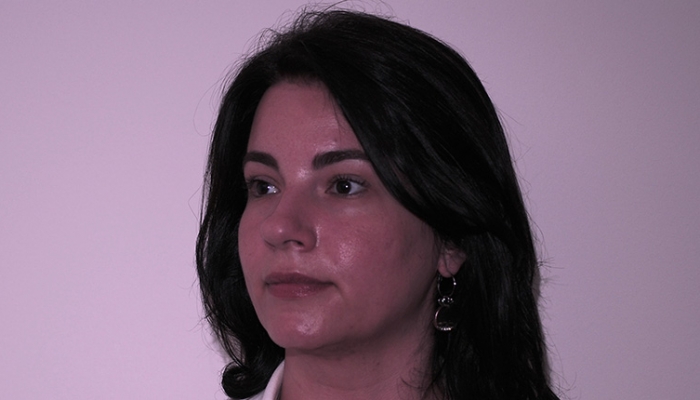PR Blogger Spotlight with Ella Minty, Power & Influence
‘This expectation that we all have to sing and dance, go to the pub and be merry and joyful when that is not how you really feel can take an immense toll’ – today’s spotlight falls on PR pro and Power & Influence blogger Ella Minty, who knows the unique pressures of working in public relations as well as the highs (creativity and stereotype shattering) that go with the occasional lows (long hours and stress).
Encouraging knowledge sharing in her popular #PowerAndInfluence Twitter discussions as well as on the Power & Influence blog, Ella shares extra wisdom with us on how important deeper thinking and diversity is for happiness in the office environment and making more meaningful work.
How did you originally get started with writing about PR, marketing and comms?
I wanted to share what I know and provide a different take on some of the aspects we don’t come across that often but, when we do, they become crucially important to get right from the start.
What’s your favourite thing to post about and why?
It has to be business, through the lens of a PR practitioner and vice versa. I am bemused by how much time we spend looking through a magnifying glass at ourselves (naval gazing) as opposed to really understanding what those who need our services – besides a campaign for a toothpick – are really looking for.
What are some of the recent campaigns you’ve written about that you really liked and why were they special?
I haven’t written anything about campaigns because I haven’t found any to be ground-breaking and really soul-searching. What I can tell you though, after having judged three PRCA MENA’s 2020 Awards categories (and here I’m only referring to the Best PR Campaign: Digital category) I was really blown away by Golin MENA’s ingenious and innovative approach to making a boring and rather bland product such as paint really stand out. Their Jotashield campaign for Jotun Paints was really something else.
With mental wellbeing being a big issue in the industry at the moment, what do you think agencies can do to support their employees?
Listen – like, really listen and observe. This expectation that we all have to sing and dance, go to the pub and be merry and joyful when that is not how you really feel takes an immense toll. Allow people to be themselves and express their feelings; if all agencies did that to begin with it would be a massive step forward. Encourage authenticity and self-reflection.
How can the PR industry work on its diversity problem?
We should understand that diversity has two main forms of manifestation: one is physical and the other is mental. The former is ‘people like us’ and the latter is ‘no more nodding heads’. This reminds me of that splendid Procter & Gamble campaign aimed to shatter stereotypes ‘Like A Girl’, and of how far we are to even comprehending that another view, someone else’s experience and take on issues may, actually, help us become better.
We often stop at skin colour and gender and we shouldn’t; innovation, forward thinking, competitive advantage and so on, all these imperatives for business growth are in the mind, not in the body. When you submit a proposal, are brought in to sort an issue or help in a crisis, it is your mind that will make all the difference, not the way you look or dress. The quotas on diversity need to be very carefully considered, especially when it comes to gender diversity – bring a woman in because she is the best at that job, not because she is a woman.
How has the relationship between the media and public relations changed during your time in PR?
It has changed dramatically. When I started, almost 20 years ago, the journalists were the authors and the keepers of the ‘Bible’. There was a very clear demarcation line: they asked, you answered, then you could only hope they understood. Today, the lines are blurry and I am quite sad to see that some journalists forget that they are supposed to be neutral, ethical and professional. Equally, it never ceases to amaze me that we still have PR practitioners who treat journalists like the fish in a pond: throw something in and see how many fish you can catch.
Do you think calling to pitch stories to journalists can ever be a good move?
It can, providing the right story is pitched to the right journalist. A journalist cannot be expected to be everywhere, read everything and know what is happening in their sector 24/7. If we can provide them with something that is of real interest to them, we should. This is how many professional and long-lasting relationships start: as transactional.
What are the pros of working with influencers versus ‘traditional’ media?
I have very strong views on this, and often my views are rather strong, one might argue. Influencers to me are pretty much as ‘influencing’ as the answer to the question: ‘how long is piece of string?’. Celebrities are still good at raising awareness when it comes to products – credible they are not, for the most part. Social media influencers, and I cannot help mentioning the case of the ‘over four million followers’ ‘social media star’ who couldn’t make it through one of the dance-offs of Strictly Come Dancing last year; how ‘influencing’ was that influencer? I’ve written quite a lot about this subject and I would always urge caution. If treated strictly as a paid-for transactional relationship, the contractual terms must be very strict to ensure both parties are clear on what their obligations, liabilities and expectations are.
The ‘pros’ of influencer marketing are reach, awareness and, potentially, sales impact – but the last point needs to be very carefully tied back to the actual influence of that person. And I’ll give you an example of a perfect influencer in my book: Stephen Waddington. Before I created my blog, I used to write a lot for CIPR’s Influence (online version) without even thinking to go through the effort and trouble of creating my own blog – between ‘Influence’ and LinkedIn’s Article feature, I was ok. But then Stephen wrote something and urged us to create our own platforms – after all, I can be as hard as I want on one topic or another in my own blog as opposed to someone else’s. Then, it was also Stephen who, when I complained about something to do with our practice a several years ago, when he was the President of CIPR, he turned to me and said just this: ‘and what are you doing about it?’. The penny dropped and I thought to myself ‘I’d better do something about it’ – and I did.
So what I am trying to say here is that an influencer’s ‘influence’ can only be measured, realistically, in their ability to influence someone to do something: change, use, buy, etc.
Do you work with other PRs on your blog? How would you prefer they approach you and with what kind of content?
No, I don’t – never had the chance to because, although I’ve been sent numerous press releases, those I found really interesting to have a constructive dialogue with were only interested in ‘broadcast’, not in anything else. I’m happy to be approached by anyone who has a very interesting story to tell, particularly in our line of work, and is ready to answer my questions – some I’ve even invited to host a #PowerAndInfluence chat but, when they learned that the chat is a conversation and not a prescriptive Q&A or a chest-beating opportunity, never came back to me.
If I like what I read, then I’ll approach the sender – I will never ask to be paid for my writing about them or doing a #PowerAndInfluence together; I have a blog because I am passionate about what I do/write – it’s not a means of income for me and it will never be; this is why I don’t accept any advertisements etc. My blog is very personal and special to me, so any co-operation with any other PR professionals will be based on that premise.
What other blogs do you check out regularly?
I read Stephen Waddington, Scott Guthrie and Jessica Pardoe quite regularly, as well as Sarah Waddington’s FutureProof – I like learning something new every day and look for ‘wow, I didn’t know that’ or ‘I never thought about that’ kind of content. But I read many others, too, depending on the topic/subject. The blog articles I loathe are those who invite you in (clickbait style) and bore you to death in the first five minutes with their services on the topic, how you can work with them, etc. I appreciate that some or many make money from writing blogs, and that is fine with me – but it would be great if they could wow the reader with their knowledge on that topic first and, right at the very end of the article, promote what they do and how they do it.








Leave a Comment